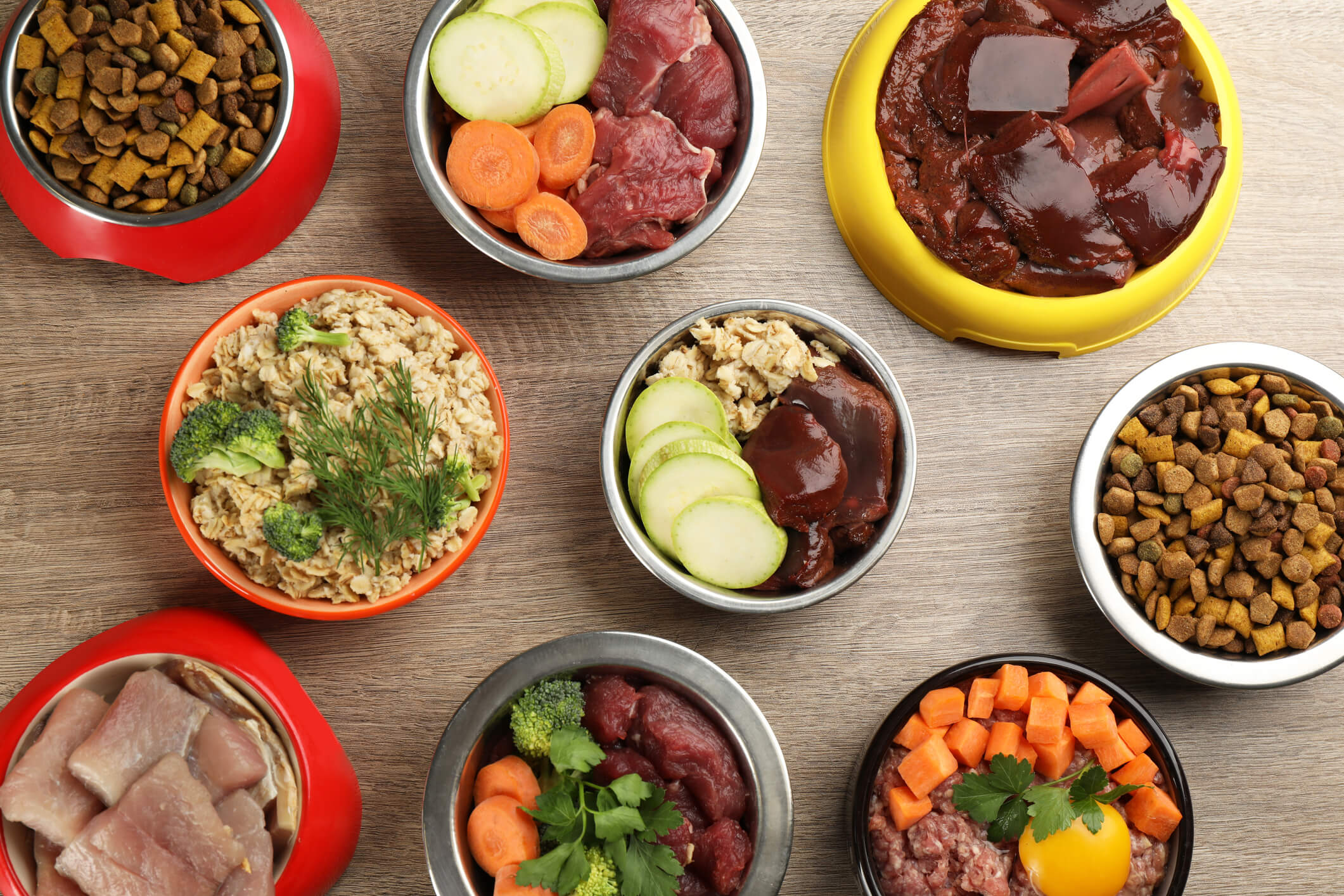
Herbs, Raw Meat, Egg Shells, Duck Heads! What's In Your Dog's Bowl?
Most dogs go their whole lives eating nothing but kibble, treats and the occasional table scrap. But some pet parents like to mix things up in an effort to add some variety to their furry friend’s diet. This can lead pet parents to give their pups a taste of less-conventional foods like herbs, egg shells and even duck heads.
While these foods provide a change of pace, the question remains whether they possess any nutritional benefits for your canine companion. Check out the latest trends in the world of dog nutrition to see if they’re worth adding to your dog’s food bowl.
Herbal supplements
Many pet parents give herbs to their dogs to supplement commercial pet foods. Dogs can safely eat a variety of herbs, including dandelion, ginger, lemon balm, rosemary and more. Herbs are praised for their ability to treat ailments like chronic pain, stress and inflammation. Pet parents usually incorporate herbs as a holistic alternative to conventional medicine, especially when their dog has been diagnosed with a chronic health condition.
Pet parents can add herbs to their dog’s diet as long as they follow a vet’s guidance on dosage and reputable brands. Dosage will vary depending on the dog’s age, breed and medical history. While herbs are generally safe, your dog may experience minor side effects if they eat too much of the herb. Avoid picking herbs in the wild since it’s easy to confuse them with potentially dangerous plants. Herbs are made commercially available via powders, capsules and tinctures, and a vet can tell you which brands they trust most.
Bones and raw meat
The raw food diet has become a popular trend among pet parents. Some people give dogs a diet that primarily consists of raw meat, bones and organs. Pet parents might gravitate toward the raw food diet because it helps build strong muscles and produces a shinier coat. Raw meat doesn’t contain the preservatives or artificial flavors you’d find in processed dog foods. This diet is often prepared at home, allowing pet parents to know exactly which ingredients are going in their dog’s body.
However, there are some drawbacks to feeding dogs a raw diet. Bones, organs and raw meat can be more expensive than purchasing a bag of commercial food. Plus, pet parents must be willing to put in the time and effort every day to prepare the meals.
Raw diets must also be carefully balanced to ensure dogs are getting all the nutrients they need each day. Most importantly, feeding raw meat increases the risk of dogs contracting bacterial infections like E. coli and Salmonella, which can be extremely dangerous for their health.

Egg shells from chickens
Chicken eggs are a great source of protein for dogs. What many pet parents don’t know is that the egg shells are perfectly safe to eat, as well. They’re full of calcium, phosphorus and magnesium, all of which help build strong teeth and bones. Egg shells are especially beneficial for dogs with kidney disease, as this disease often leads to a calcium deficiency.
Egg shells aren’t necessary for dogs that eat well-balanced diets, however. In fact, egg shells can add too much calcium to your dog’s diet. An overabundance of calcium may lead to a condition called hypercalcemia, which can result in digestive upset and bladder stones.
Additionally, while egg shells are easy for dogs to chew, the pieces are too big for the intestines to fully digest. If your dog has a calcium deficiency, consider feeding them a form of calcium that’s more readily absorbed into the bloodstream.
Duck heads for dogs
Pet parents who follow a raw food diet might also treat their dogs to the occasional dehydrated duck head. Duck heads are safe for medium to large dogs to eat. They’re considered “raw meaty bones” and are a good source of calcium, phosphorus, iron and amino acids. Duck meat is also a low-fat source of protein that’s frequently given to dogs with food allergies.
Dehydrated duck heads are firm for dogs to chew on, which can help exercise their jaws (and brains!) and knock gunk off their teeth. Duck heads should never be boiled beforehand, since this can make the bones brittle and cause them to splinter. Even still, some dogs might try to swallow the bones in a duck head whole. This can pose a choking hazard, so monitor your dog closely if you decide to feed one to your pup.
Dog owners are free to explore dietary options beyond the usual scoop of kibble. However, it’s important to weigh the benefits and drawbacks of certain ingredients before adding them to your dog’s diet. A vet can offer insight about your dog’s overall health and recommend foods to fulfill their nutritional needs.


